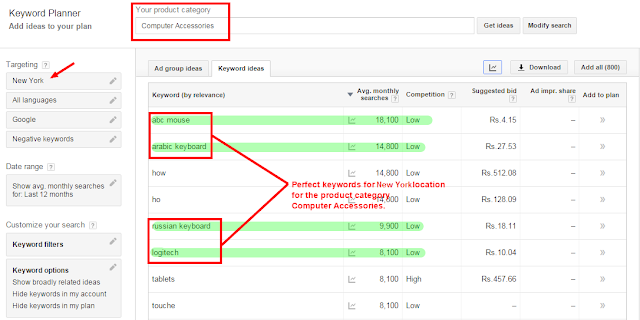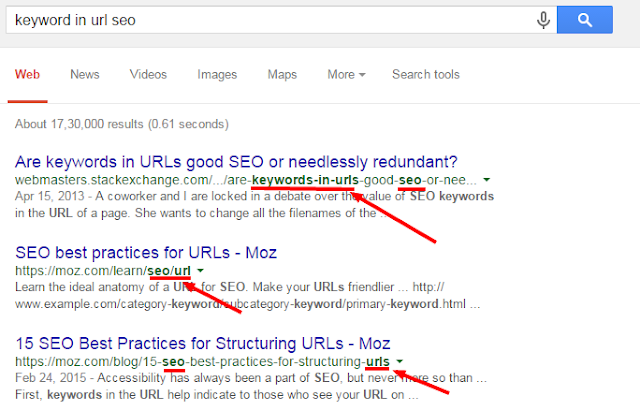Everything you're doing within your website to boost the search engine ranking is called on-page optimization. The process is mainly divided into two parts- a) technical parts b) content part. Here one thing should be mentioned that- your content usability is the most important in on-page optimization and search engine ranking.
There are two types of Page optimization- 1) On-page optimization. 2) Off-Page optimization. In this section we're going to discuss on On-Page optimization.
Read- Working on SEO for small business. (Part-1).
1. Initial Site Analysis: It's a site analyzing the process by which you can determine the SEO crisis of your website. This process will also highlight the weekly portions (like- meta tags, HTML improvements, etc.) of your website which you need to improve to get a better SEO result. Generally, most of the webmasters are using the Google Webster tools (Search Console) to analyze their website. Here is another free SEO analyzing tool is- seoworkers.com.
2. Competition Analysis: It's actually not a part of off page SEO but, as it can give us and advance idea of our upcoming marketing competition (including SEM) so, many SEO experts are taking it as a part of SEO. It's the process of analyzing your expected market competition, before start your marketing campaign. You can use the tool like SimilarWeb for competition analysis.
3. Site Structure: According to the Google SEO guideline (PDF- 4.11MB), you should keep your all pages link within three step deep from the Home page for better SEO results. For instance- Home page >> Category >> Article pages.
4. Keyword Research and Competition: You need the right keywords placed on your site to get targeted customers from search engines. The Google Keywords Planner is the best tool to know the perfect keywords for your business comparing search volume and its competition.
To get the perfect keyword for your business see the picture demonstration below-
5. Now, where to put those keywords;
Here you need to do some easy coding. Place those keywords within your title tag and meta description in your site's HTML source (just below the <head> tag) like below format-
6. URL: Well, According to the Google, the keyword in the domain name is not so important for search engine ranking but, Google search result showing that they are catching keywords in the rest of the URL section. For instance- you should try to keep keywords in article URL like this- www.your-domain.keyword-of-your-article.html.
7. Title Tag and Meta Tags: Title tags are shown in browsers tab section as well as in the search engine result pages. It's also called the title of your content. It's written as a title> Your-Content-title /title> into the HTML, XML or PHP source of your website just below head> section. It's the most important part of SEO because, the search engine will determine your content topic from here.The
Google search engine also prefers many other meta tags like- meta description, meta keywords, etc. Here meta description is more important than meta keywords. Read more about meta tags Here.
8. Heading tags, like- H1, H2, H3: Read about h tags- Tips to Use Custom Blogger Template for The First Time
9. ALT text: ALT text is only used to describe the visual contents like- images. Because, search engines can't read images. The format of ALT tag- img src="seabeach.PNG" alt="Goa sea beach">. You should use keywords in ALT tags because, it can display your images in the image search results for relevant keywords.
10. Sitemap: A sitemap of your website is important not only for informing search engines about any changes on your site, but also it can help search engines to crawl and index your new contents more easily. You can submit your sitemap to the search engine's webmaster tool (Google, Bing, etc.). Create your XML format sitemap Here.
11. Webmaster Tools: Webmaster tools is also very important for SEO. Because, this tool can indicate your current SEO status of your website including SEO errors. There are many webmaster tools are available like- Google Webmaster tools, Bing Webmaster tools, etc. You should always use both for better SEO.
Next- Off-page SEO, Modern Linkbuilding Techniques
Read- Working on SEO for small business. (Part-1).
The Working Factors of On-page optimization;
There are more than 200 factors working on Google ranking. But, the most common SEO factors of any website are-- Initial Site Analysis.
- Competition Analysis.
- Site Structure.
- Keyword Research and Competition.
- Keyword placement.
- Title tags.
- Meta tags.
- URL
- Heading tags, like- H1, H2, H3.
- Alt text.
- Sitemap.
- Webmaster Tools.
In details-
1. Initial Site Analysis: It's a site analyzing the process by which you can determine the SEO crisis of your website. This process will also highlight the weekly portions (like- meta tags, HTML improvements, etc.) of your website which you need to improve to get a better SEO result. Generally, most of the webmasters are using the Google Webster tools (Search Console) to analyze their website. Here is another free SEO analyzing tool is- seoworkers.com.
2. Competition Analysis: It's actually not a part of off page SEO but, as it can give us and advance idea of our upcoming marketing competition (including SEM) so, many SEO experts are taking it as a part of SEO. It's the process of analyzing your expected market competition, before start your marketing campaign. You can use the tool like SimilarWeb for competition analysis.
3. Site Structure: According to the Google SEO guideline (PDF- 4.11MB), you should keep your all pages link within three step deep from the Home page for better SEO results. For instance- Home page >> Category >> Article pages.
4. Keyword Research and Competition: You need the right keywords placed on your site to get targeted customers from search engines. The Google Keywords Planner is the best tool to know the perfect keywords for your business comparing search volume and its competition.
To get the perfect keyword for your business see the picture demonstration below-
 |
| Picture-1 |
 |
| Picture -2 |
5. Now, where to put those keywords;
Here you need to do some easy coding. Place those keywords within your title tag and meta description in your site's HTML source (just below the <head> tag) like below format-
- Title tag- <title> keywords within your site title</title>. Will be shown your browsers tab.
- Meta description- <meta content='keywords within your site description' name='description'/>. Known also as search description. To tell search engines, what your site is about.
6. URL: Well, According to the Google, the keyword in the domain name is not so important for search engine ranking but, Google search result showing that they are catching keywords in the rest of the URL section. For instance- you should try to keep keywords in article URL like this- www.your-domain.keyword-of-your-article.html.
7. Title Tag and Meta Tags: Title tags are shown in browsers tab section as well as in the search engine result pages. It's also called the title of your content. It's written as a title> Your-Content-title /title> into the HTML, XML or PHP source of your website just below head> section. It's the most important part of SEO because, the search engine will determine your content topic from here.The
Google search engine also prefers many other meta tags like- meta description, meta keywords, etc. Here meta description is more important than meta keywords. Read more about meta tags Here.
8. Heading tags, like- H1, H2, H3: Read about h tags- Tips to Use Custom Blogger Template for The First Time
9. ALT text: ALT text is only used to describe the visual contents like- images. Because, search engines can't read images. The format of ALT tag- img src="seabeach.PNG" alt="Goa sea beach">. You should use keywords in ALT tags because, it can display your images in the image search results for relevant keywords.
10. Sitemap: A sitemap of your website is important not only for informing search engines about any changes on your site, but also it can help search engines to crawl and index your new contents more easily. You can submit your sitemap to the search engine's webmaster tool (Google, Bing, etc.). Create your XML format sitemap Here.
11. Webmaster Tools: Webmaster tools is also very important for SEO. Because, this tool can indicate your current SEO status of your website including SEO errors. There are many webmaster tools are available like- Google Webmaster tools, Bing Webmaster tools, etc. You should always use both for better SEO.
Next- Off-page SEO, Modern Linkbuilding Techniques












Thank you for some other informative website. The place else may just I get that kind of information written in such a perfect method? I have a venture that I am simply now running on, and I’ve been at the glance out for such info. buy high da backlinks
ReplyDeleteSuper site! I am Loving it!! Will return once more, I’m taking your food additionally, Thanks. 먹튀폴리스
ReplyDeleteThankyou for taking the time to write this it was a great read. Good job! 토토사이트
ReplyDelete